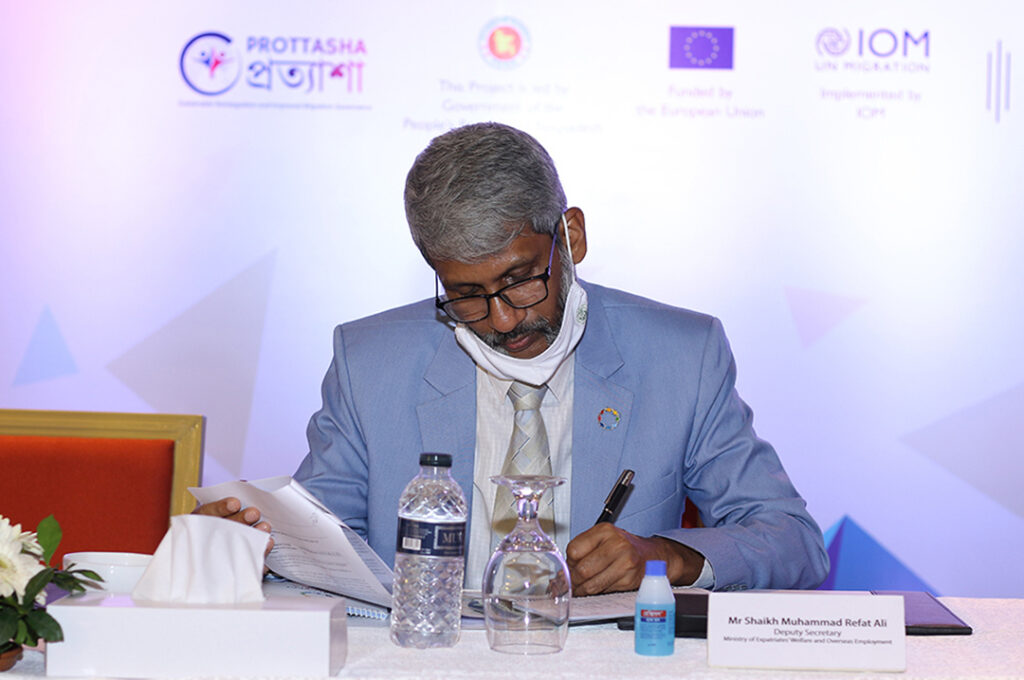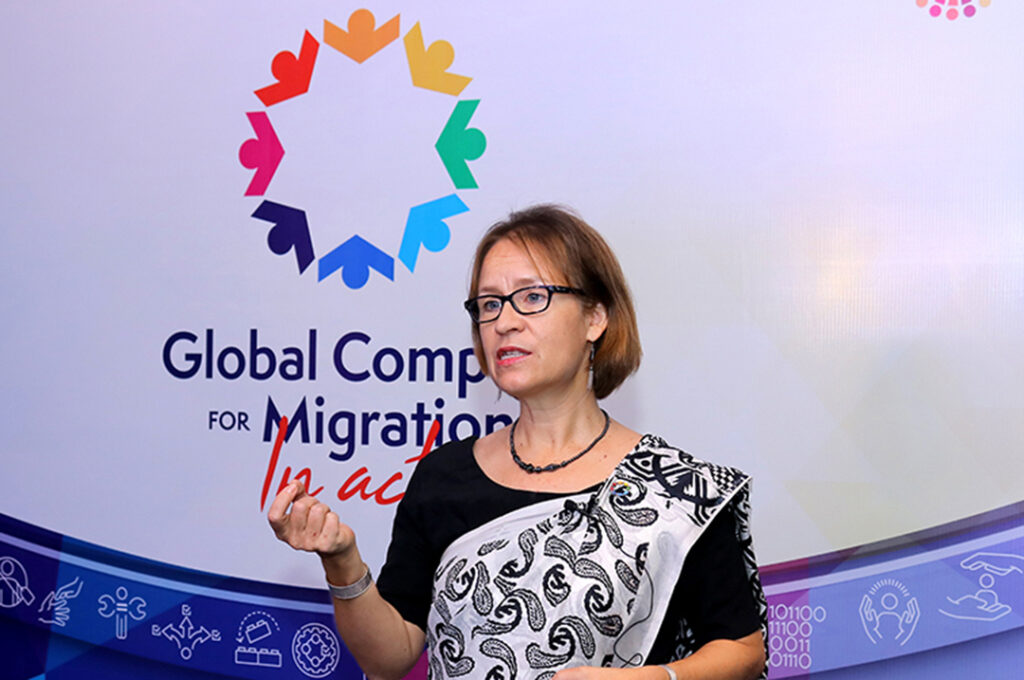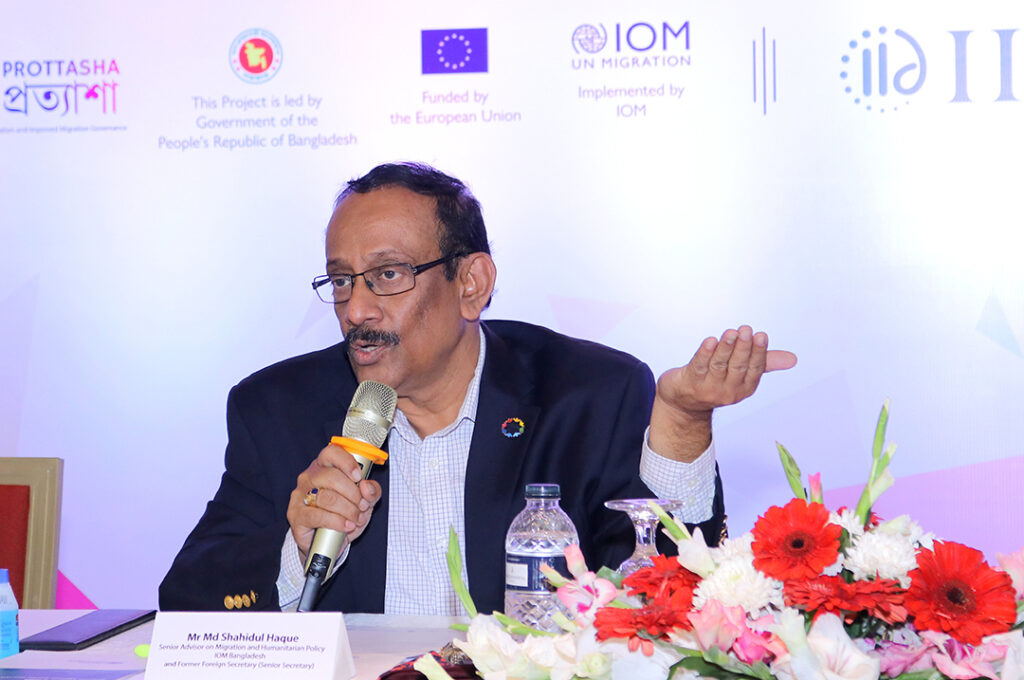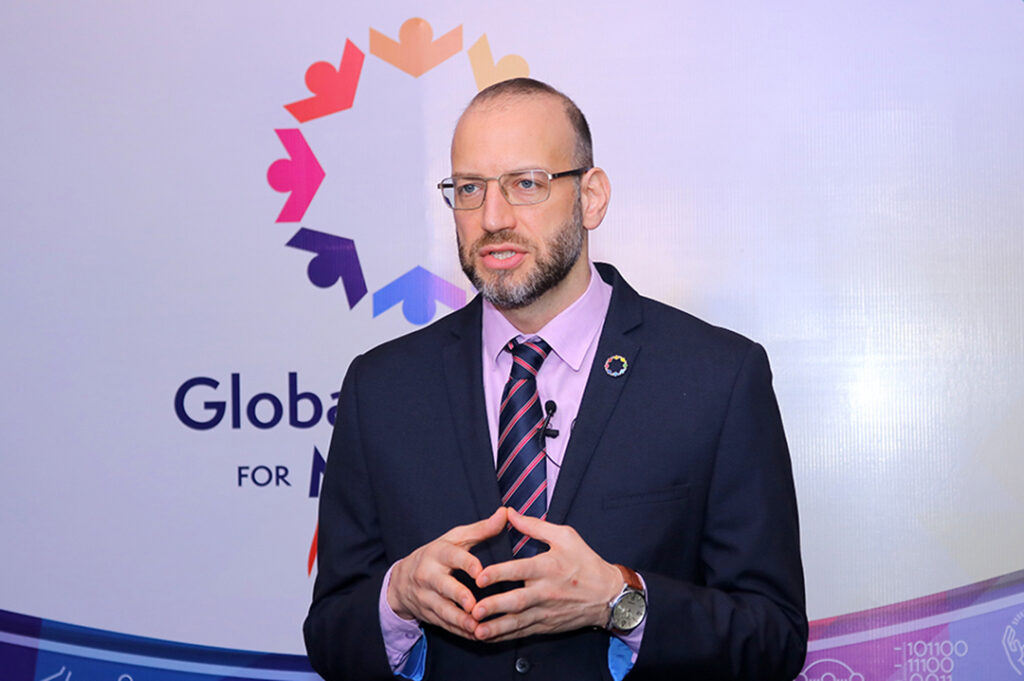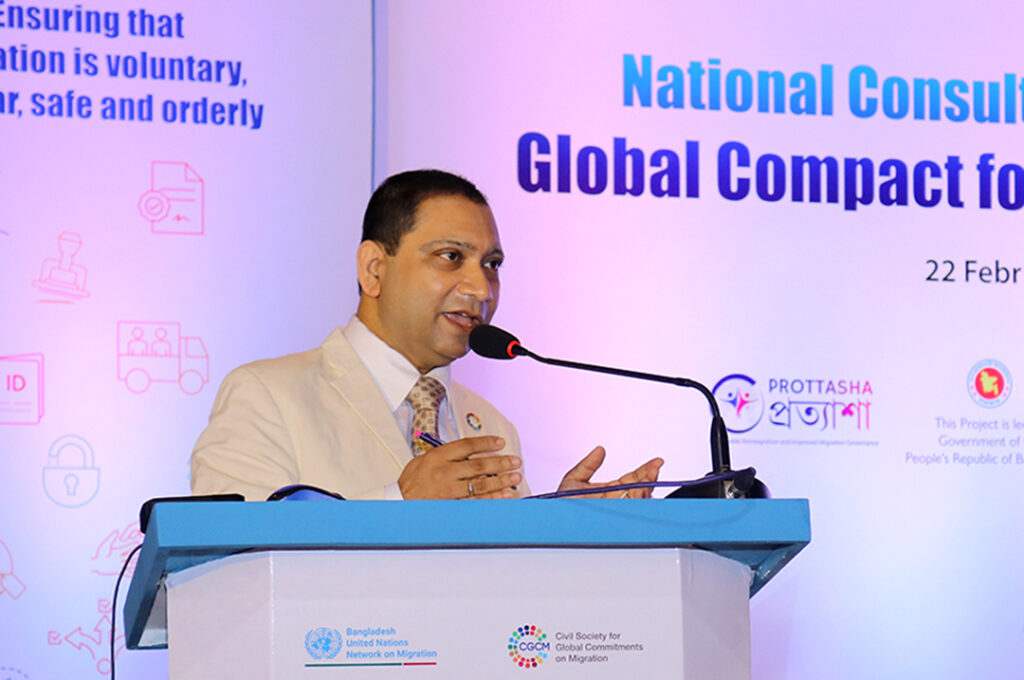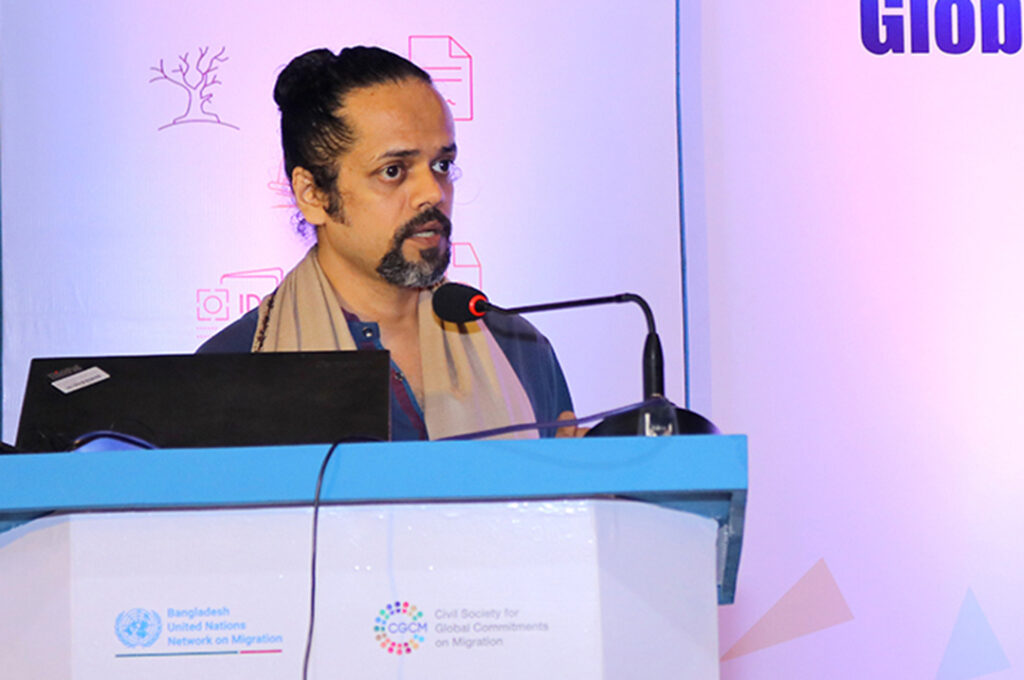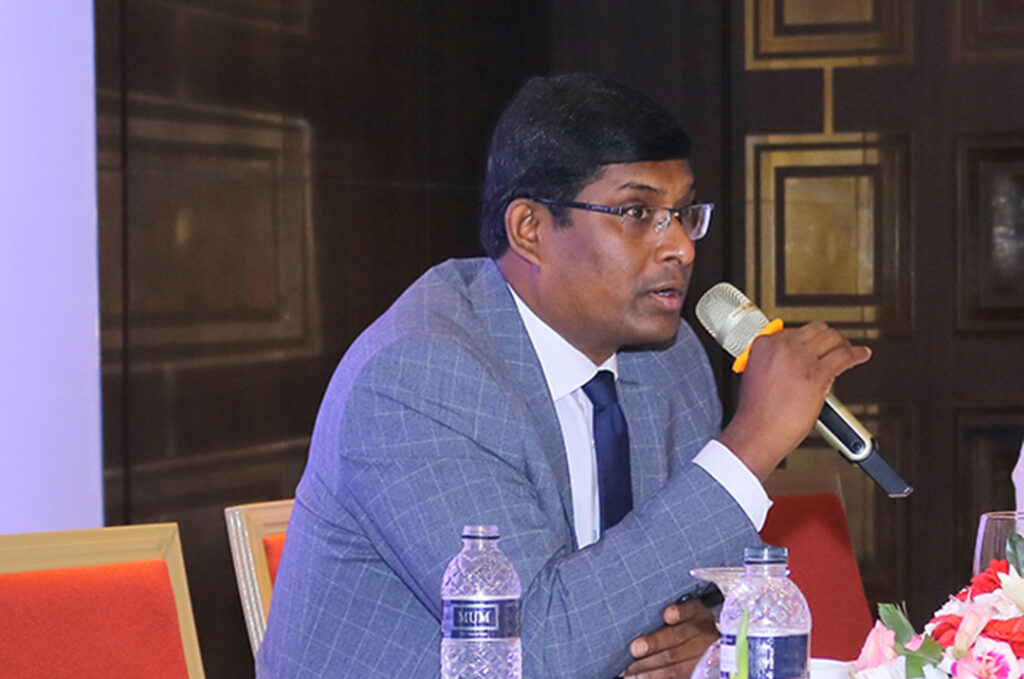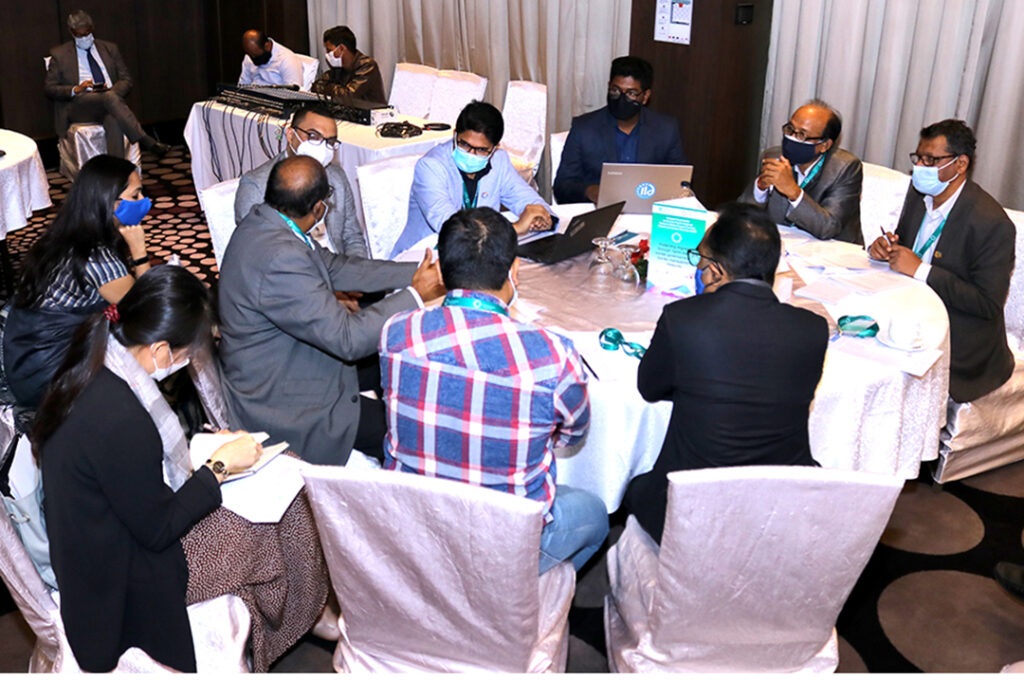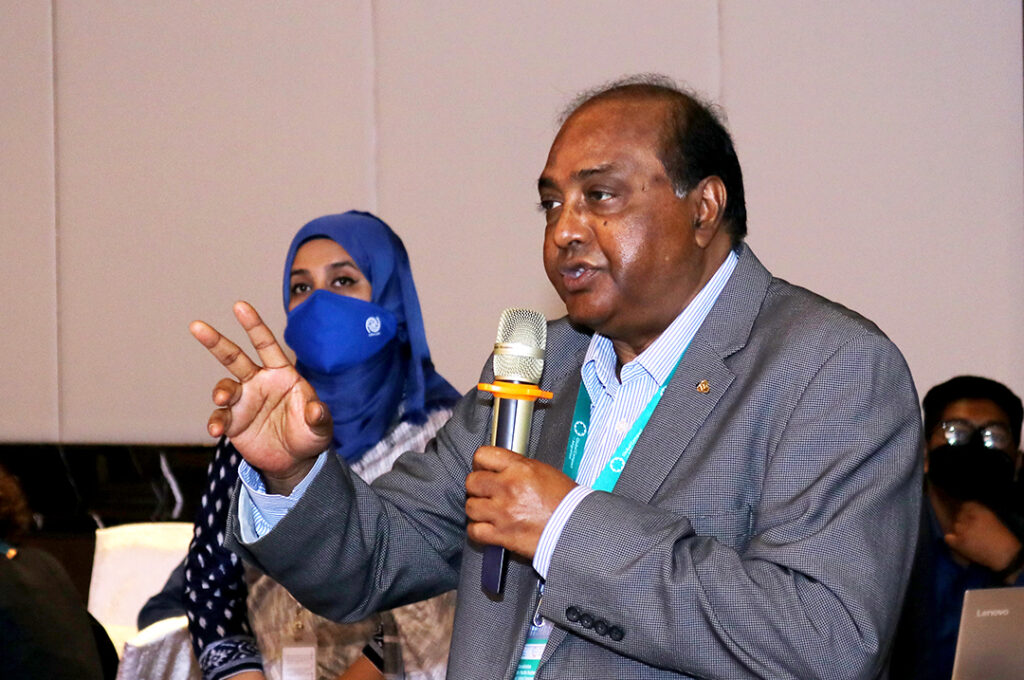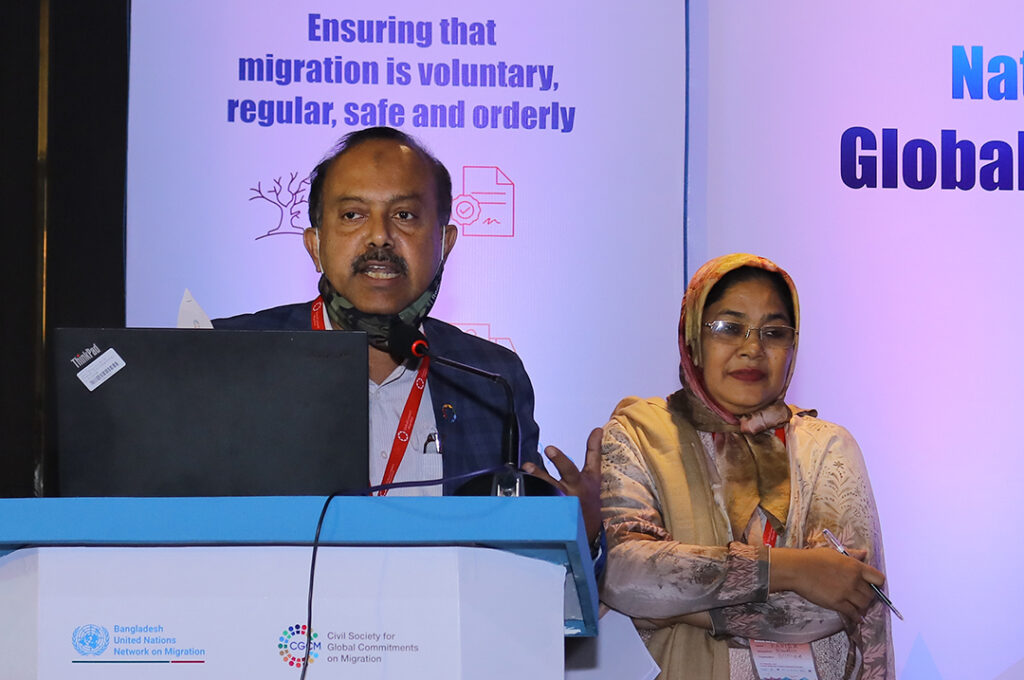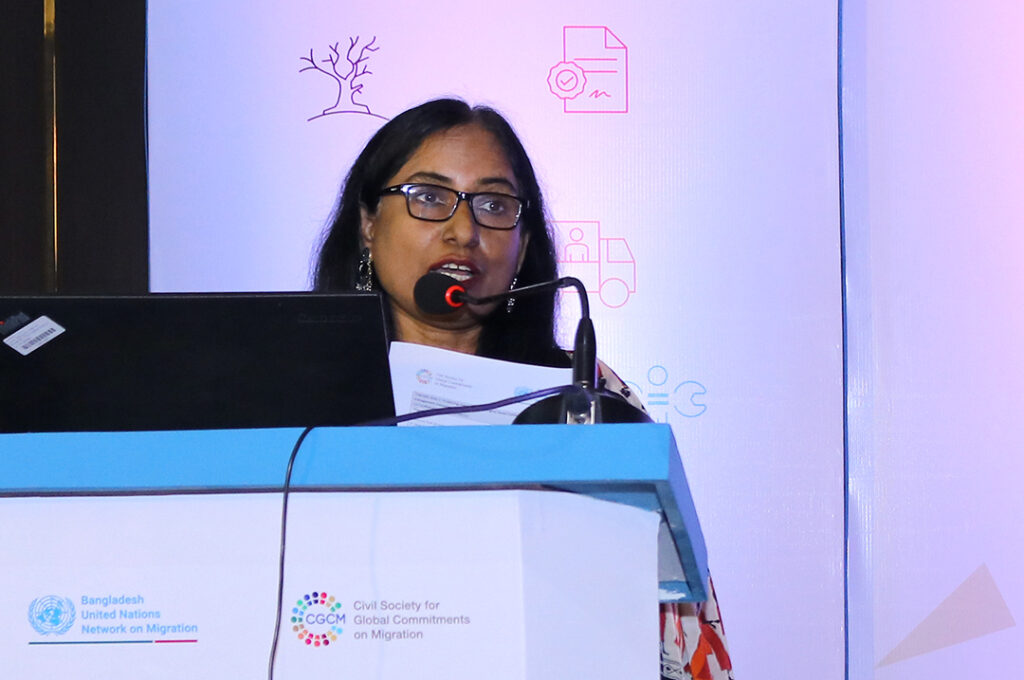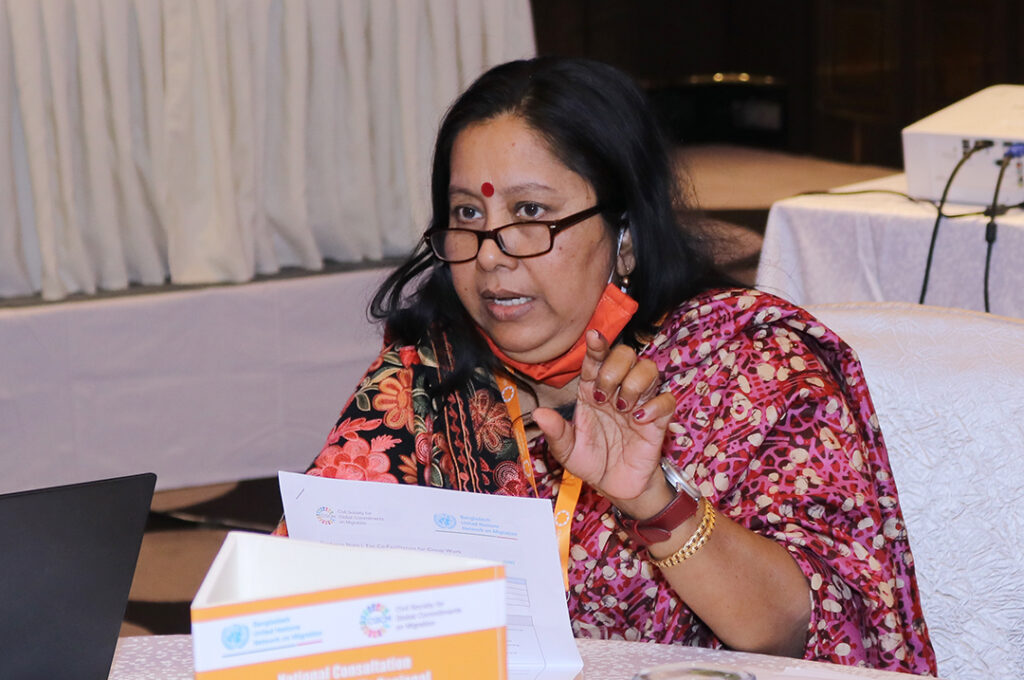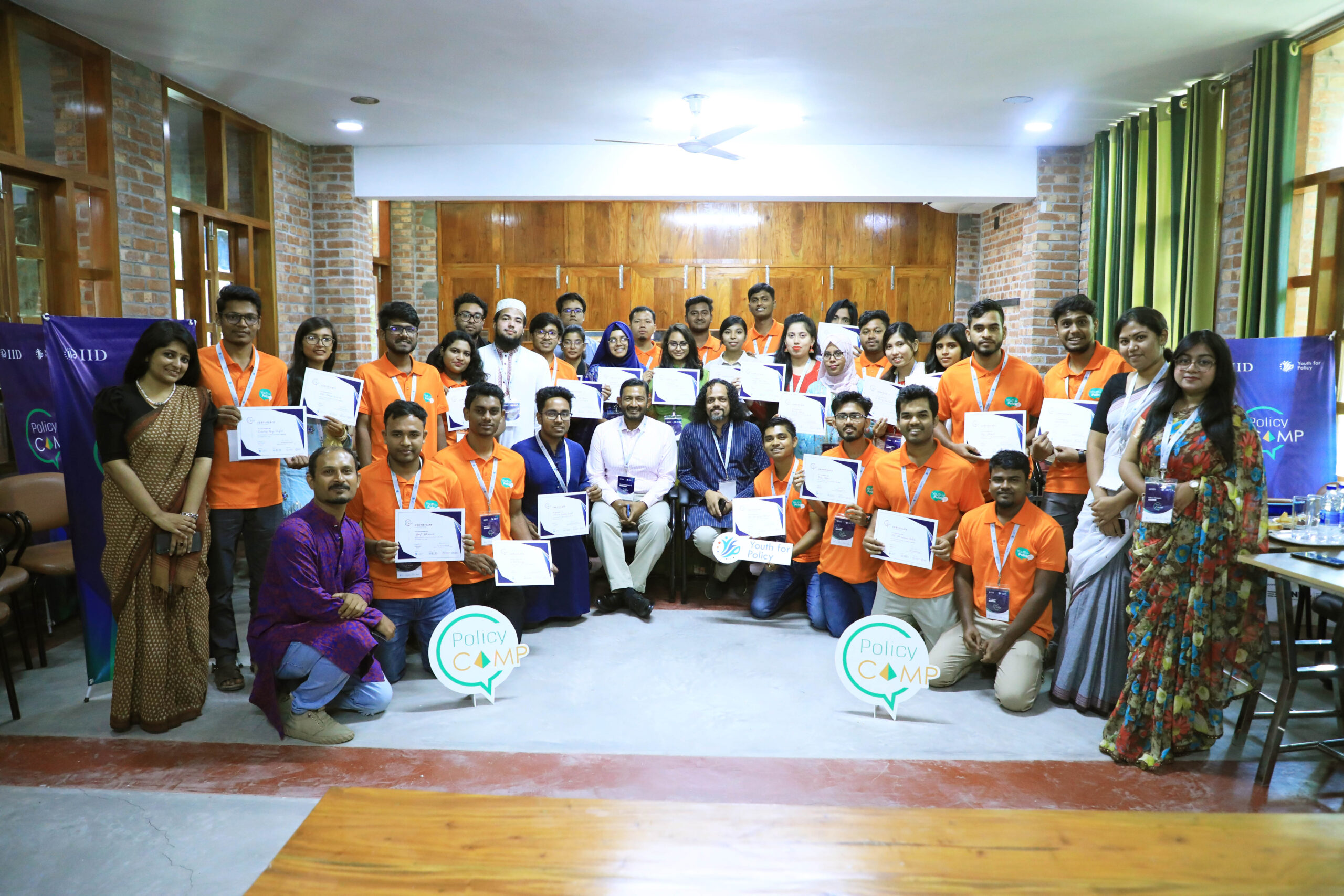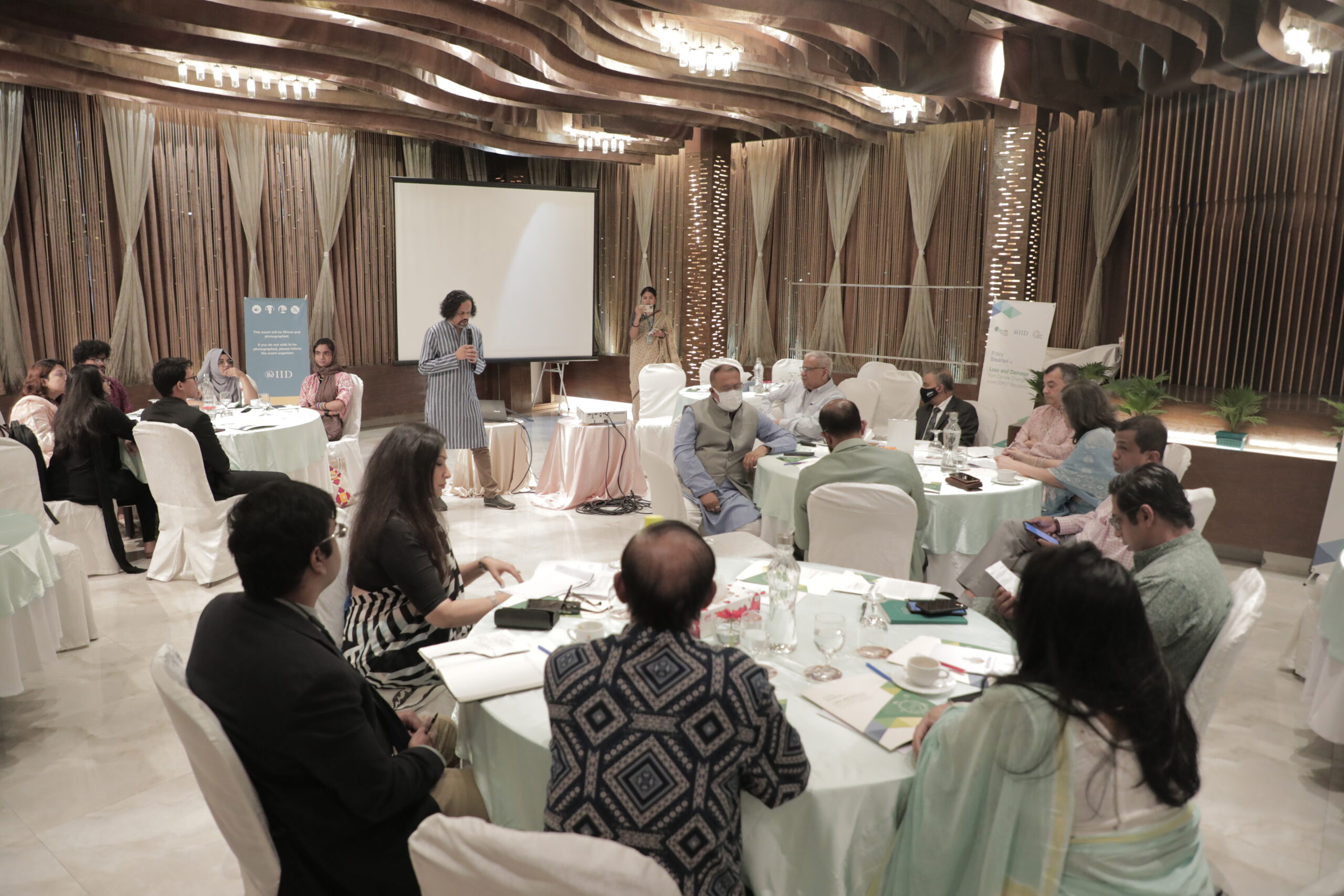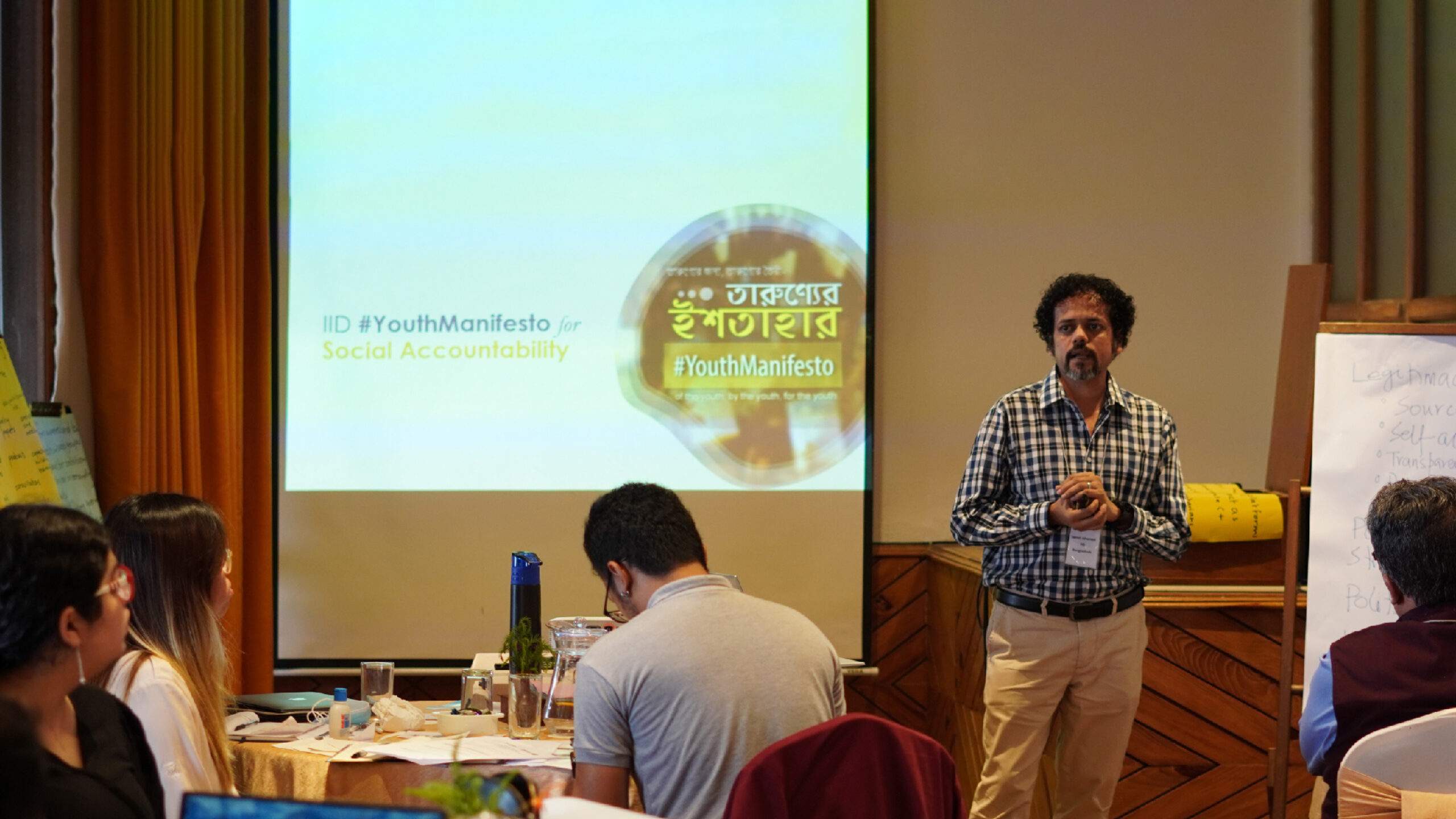With the Asia-Pacific Regional Review of Implementation of GCM at the doorstep, relevant stakeholders came together in a consultation to identify issues to put forward by the Bangladesh delegation in the intergovernmental meeting during the Regional Review to be held from 10 to 12 March 2021 in Bangkok.
The National Consultation for The Asia Pacific Regional Review of GCM was held on 22nd February 2021 in Dhaka. Bangladesh United Nations Network on Migration (BDUNNM) and Civil Society for Global Commitments on Migration (CGCM) co-hosted the event. The participants of the consultation included government and other stakeholders who would be attending the Regional Review. So, the consultation was a good opportunity for the government and other stakeholders to discuss key points regarding GCM implantation that they would like to highlight in the original forum.
The national consultation opened and closed with two separate panel discussions and four group discussions in parallel break-out sessions in between. The themes for the four groups to discuss were organized along the lines of clusters of the Global Compact objectives of the roundtables envisaged for the International Migration Review Forum (IMRF) to be held in 2022. Each breakout session was co-hosted by a member of CGCM and BDUNNM. In the break-out sessions, the participants identified the progress, key challenges, good practices, capacity-building needs, and way forward in the implementation of the objectives in the respective clusters. After the break-out sessions, each group presented the findings of their discussions.
In her welcome speech, Sumaiya Islam, Executive Director of Bangladesh Nari Sramik Kendra (BNSK), urged that just as CGCM and the Trade Union are working together on different aspects of migration governance including the Regional Review Process, a stronger partnership between relevant stakeholders needs to be built to ensure safe, orderly, and regular migration.
Shaikh Muhammad Refat Ali, Deputy Secretary, Ministry of Expatriates’ Welfare and Overseas Employment stated that migration governance has been crucial for Bangladesh as it had been simultaneously working as a country of origin, transit, and destination of migrant workers.
Mia Seppo, UN Resident Coordinator, United Nations in Bangladesh, urged everyone to take strong ownership of the commitments that are made in the Global Compact, ensure consistent application of its guiding principles, and respond to the evolving needs of the migrants.
Md. Nazrul Islam, Director General, Ministry of Foreign Affairs, mentioned Bangladesh has integrated migration in the 8th Five Year Plan and has already drafted a National Action Plan for GCM implementation which will be implemented under the guidance of the proposed Bangladesh Migration Compact Taskforce.
Md Shahidul Haque, Senior Advisor on Migration and Humanitarian Policy, International Organisation for Migration (IOM) Bangladesh, pointed out that the migrants’ rights have taken a backseat during the Covid-19 pandemic which calls for focusing on GCM as it is a tool highly relevant in protecting migrants’ rights in the time of crisis.
Syeed Ahamed, CEO of Institute of Informatics and Development (IID), mentioned that CGCM as a co-host of the stakeholder consultations of the Asia-Pacific Regional Review of implementation of GCM would like to take forward the outcome of this national stakeholders’ consultation to the intergovernmental meeting in the Regional Review. He encouraged others to register and join the stakeholder consultations and the Regional Review, as the registration to the events is open to all stakeholders.
Giorgi Gigauri, Chief of Mission, IOM, mentioned that migrants faced the hit firsthand and the hardest during the Covid-19 pandemic due to their status, lack of prioritization by the state, lack of resources, and being in the sectors which have been affected the most which make it more important to implement GCM. He acknowledged Bangladesh’s leading role in committing to GCM, along with the civil society organization’s role in supporting migrants at the grass-root level and putting forward migrants’ cause at the policy level.
In the closing session, Barrister Shamim Haider Patwary, MP, Chairman, Parliamentarians’ Caucus on Migration and Development emphasized the necessity for taking the Covid-19 pandemic’s impact on the migration into account while implementing GCM. He also praised the strong partnership between the bureaucracy and civil society is present for policy formulation and advocacy.
The first group’s discussion in the break-out session, focusing on ‘ensuring that migration is voluntary, regular, safe and, orderly’, was co-hosted by Bangladesh Institute of Labour Studies (BILS) and International Labour Organisation (ILO). Farida Yeasmin, Director of Bangladeshi Ovhibashi Mohila Sramik Association (BOMSA) and Md. Shakil Akhter Chowdhury, Member Secretary of BILS presented the findings. Farida Yeasmin highlighted that CSOs have been conducting, although at a limited level, the pre-decision orientation of the migrants which is essential to ensure safe migration. She also mentioned government taking CSO’s opinion before finalizing the 8th 5 Year Plan can be considered as a good example for the whole of society engagement.
The break-out session of the second group was co-hosted by WARBE Development Foundation and United Nations Office on Drugs and Crime (UNODC) and focused on ‘protecting migrants through border governance and border management measures. In his presentation on findings from the discussion, Muhammad Mahdy Hassan, National Program Officer of UNODC stated that although Bangladesh has made progress by enacting the Human Trafficking Act of 2012 and its three sets of implementing rules in 2017 and adopting the UN Trafficking Protocol, implementation of the legislation is not evident.
The third group discussed the GCM objectives under the thematic area titled ‘supporting migrants’ protection, integration and contribution to development’ and the session was jointly hosted by BRAC and UN Women. While presenting the findings of this group, Tapati Saha, Program Analyst of UN Women, pointed out that good practices like providing temporary consular services in remote areas, cooperating with local civil societies, and creating apps for embassies have been undertaken by few Bangladeshi embassies during COVID-19 pandemic, which should be followed by other embassies.
The fourth group discussion was facilitated by BNSK and United Nations Development Programme which focused on ‘Strengthening evidence-based policy making, public debate, and cooperation for safe, orderly and regular migration. Sumaiya Islam, Executive Director of BNSK, emphasized that the low bargaining power of Bangladesh limits the guarantee of the basic needs of the Bangladeshi migrants in the destination countries, which can be strengthened through the compact of labour sending countries.
Among others, the consultation was attended by Mahjabeen Khaled, Parliamentarians’ Caucus on Migration and Development; Farida Yasmeen, MoFA; Weibel Roberts Laetitia, ILO; Shirin Lira, PROKAS, British Council; Syed Saiful Haque, WARBE DF; Shariful Islam Hassan, BRAC; Hassan Imam Shaon, DEVCOM; Asif Munier, ILO; Arif Abdullah Khan, UNDP; Katrin Rosenberg, HELVETAS Anisur Rahman Khan, Awaj Foundation; AKM Masud Ali, INCIDIN; Mahbub-E-Alam, UNFPA; Rafeza Shaheen, Manusher Janne Foundation; Md Tariqul Islam, Justice & Care, Razequzzaman Ratan, Somajtantrik Sramik Front, A. A. Mamun, OKUP, Pulok Ranjan Dhar, BCWWF; Nazrul Ahsan, BOAF; Nazgul Cholponbaeva, UNICEF; and participants from organizations working in the migration sector.

